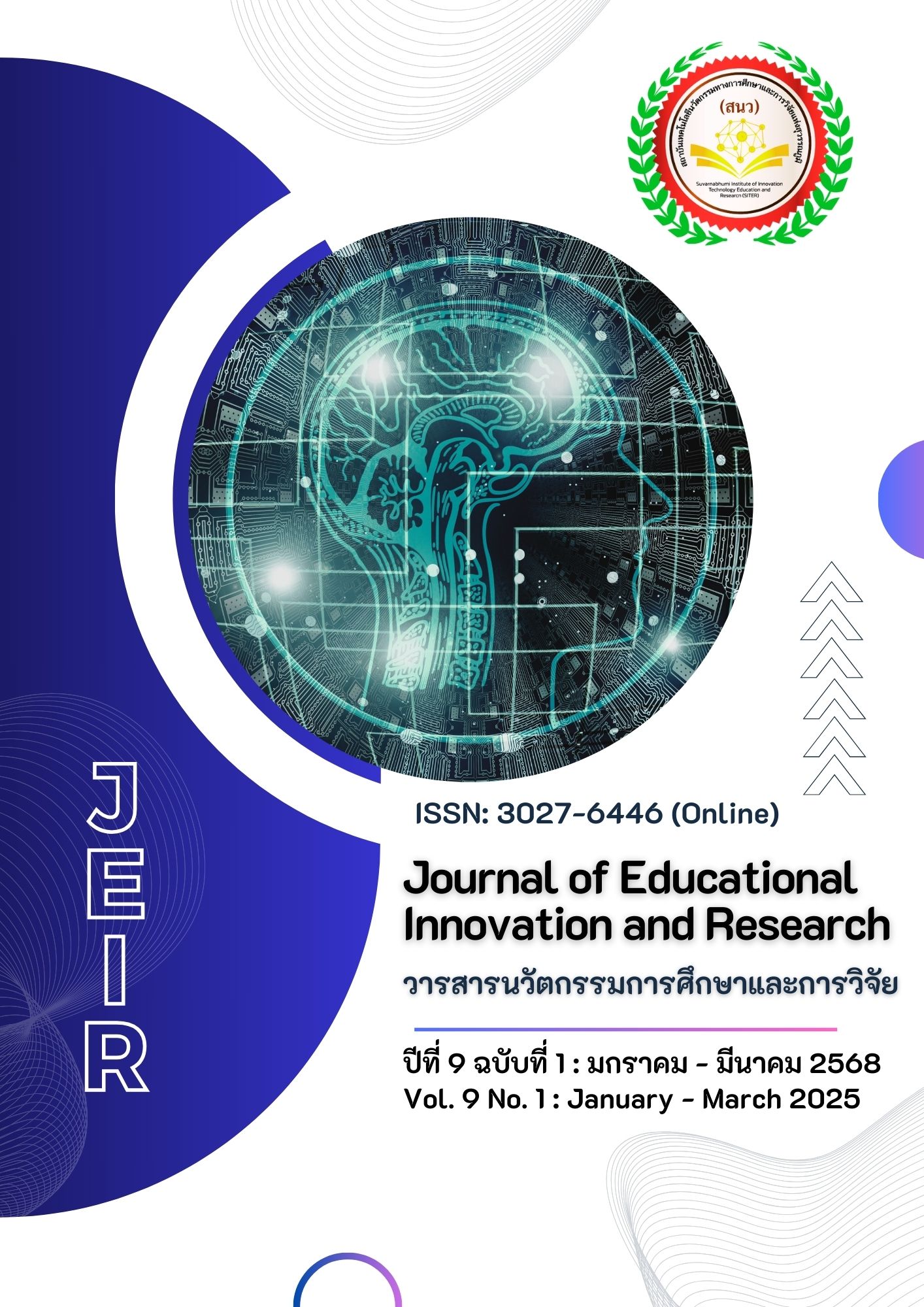รูปแบบการพัฒนาธุรกิจสื่อพอดแคสต์ในประเทศไทย
Main Article Content
บทคัดย่อ
งานวิจัยนี้มีวัตถุประสงค์ เพื่อศึกษารูปแบบการพัฒนาธุรกิจสื่อพอดแคสต์ในประเทศไทยเป็นรูปแบบการวิจัยเชิงคุณภาพ ด้วยการสัมภาษณ์เชิงลึก โดยการเลือกกลุ่มตัวอย่างที่มีประสบการณ์จากผู้ผลิตสื่อที่ทำธุรกิจสื่อพอดแคสต์ในประเทศไทย จำนวน 5 คน
พบข้อมูลจากการสัมภาษณ์เชิงลึกด้วยวิธีการเลือกแบบเฉพาะเจาะจง จากผู้ผลิตสื่อที่ทำธุรกิจสื่อพอดแคสต์ในประเทศไทย จากงานวิจัยพบว่า ด้านรูปแบบการพัฒนาธุรกิจสื่อพอดแคสต์ในประเทศไทย ทางผู้ผลิตต้องแสดงอัตลักษณ์ของช่องให้มีความชัดเจน และต้องมีความสร้างสรรค์ของรายการอยู่เสมอ ร่วมถึงผู้ดำเนินรายการพอดแคสต์ก็มีส่วนสำคัญอย่างมากในการที่ผู้ฟังจะเลือกรับฟัง การใช้แพลตฟอร์มโซเชียลมีเดียเข้ามาร่วมนำเสนอรายการพอดแคสต์ในทุกช่องทาง มีส่วนสำคัญอย่างมาก อาทิ เฟซบุ๊กยูทูป และติ๊กต็อก รวมถึงช่องผลิตรายการพอดแคสต์ได้มีการผลิตวิดีโอพอดแคสต์ผ่านทางช่องยูทูป เพื่อเข้ามาเสริมรายการพอดแคสต์ เนื่องจากคนไทยชอบฟังทั้งเสียงและดูภาพประกอบ อีกทั้งมีการสร้างกิจกรรมพิเศษแบบออนไลน์ และการทำทอส์กโชว์ ก็นับเป็นตัวเชื่อมความสัมพันธ์ระหว่างผู้ฟังกับช่องได้เป็นอย่างดี จึงเป็นแนวทางการพัฒนาธุรกิจสื่อพอดแคสต์ในประเทศไทยต่อไป งานวิจัยชิ้นนี้จึงเป็นประโยชน์ต่อผู้ผลิตรายการพอดแคสต์ที่ใดได้รู้แนวการพัฒนารูปแบบของสื่อพอดแคสต์ เพื่อสร้างสรรค์สื่อให้การทำงานสื่อพอดแคสต์มีความเข้มแข็งในอนาคต
Article Details

อนุญาตภายใต้เงื่อนไข Creative Commons Attribution-NonCommercial-NoDerivatives 4.0 International License.
เอกสารอ้างอิง
Arnawat, B. (2009). Effects of supplementary teaching with podcast using self-regulated learning strategies in electronic media production for education course on learning achievement and self-regulation of undergraduate students [Master’s thesis, Chulalongkorn University].
Chanintorn, P. (2018). Podcast, the new media: Comparative case studies between U.S.A. and Thailand. NBTC Journal, 2(2), 271-289.
Digital. (2022). Global overview report. https://datareportal.com/reports/digital-2022-thailand
Electronic Transactions Development Agency (ETDA). (2022). Report on the survey findings on internet user behaviors in Thailand in 2022. https://www.etda.or.th/getattachment/78750426-4a58-4c36-85d3-d1c11c3db1f3/IUB-65-Final.Pdf.aspx
Hammersley, B. (2004). Audible revolution. https://bit.ly/2CKgCqS
Kanjana, K., & Nikhom, C. (2013). Handbook of new media studies. Bangkok.
Kataya Mahachanawong, S., & Phisit, S. (2021). Podcast in Thailand. Interdisciplinary Academic and Research Journal, 1(3), 38-46.
Kotler, P. (2003). Marketing management. Prentice Hall.
McQuail, D. (2000). McQuail’s mass communication theory (4th ed.). Sage.
Prawornrat, R. (2020). Podcast content analysis: OTT services in Thailand broadcasting’s business. NBTC Academic Journal, 5, 214-250.
R-Titaya, S., & Rattanawadee, S. (2020). Gen-Y media exposure which affects the elements of the podcast programs. The Journal of Social Communication Innovation, 8(2), 125-135.


